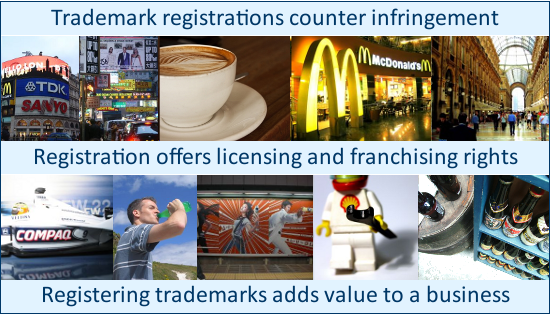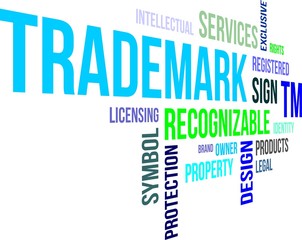Trademark infringement: passing off claims: London & UK regional courts
Solicitors specialising in UK & EU trademark infringement disputes, passing off, brand protection and intellectual property claims in the London courts.
Brands (trademarks, trading names, logos & get-up) can be most companies’ most valuable assets because they:
- indicate the source or origin of products
- guarantee quality
- advertise products.
Trademark laws attach primary importance to the origin function of brands.
Brand protection: infringement & passing off claims
United Kingdom (UK) law offers 2 main forms of brand protection:
- registered trade mark infringement proceedings
- passing off claims.
Registration is not compulsory but has the following advantages:
- Registration is initial proof of the claimant’s entitlement to the mark.
- Registration may be obtained before using the mark safeguarding any pre-launch investment.
- Registration generally allows an action for infringement to be brought without proof of damage.
- Registration gives notice to third parties of the proprietor’s interest in the mark.
The common law action of passing off depends not on registration but use of a mark. But these common law claims have drawbacks:
- Passing off calls for proof of the claimant’s goodwill in the mark.
- Passing off cannot protect an unused mark.
- Passing off depends on damage or likely damage to goodwill.
- Passing off requires a heavy evidential burden to be discharged in every case.
- In some jurisdictions, like the Community Trademark, protection is non-existent unless the mark is registered.
Registered trademark infringement & passing off are cumulative causes of action: they can be argued together on the same set of facts.
Infringement: UK & EU registered trademarks
Trade mark infringement occurs where a registered trade mark is used in the course of trade without the owner’s consent if:
- The sign used is identical to the registered trade mark & is used in relation to goods or services which are identical to those for which the trade mark is registered.
- The sign is identical with the registered trade mark & used in relation to goods or services which are similar to those for which the trade mark is registered; or is similar to the registered trade mark, and used in relation to goods or services which are identical or similar to those for which the trade mark is registered.
- And in each case there exists a likelihood of confusion on the part of the public, which includes a likelihood of association;
- Or if the sign is identical or similar to the registered trade mark, the trade mark has a reputation in the UK or EU, and the use of the sign, (being without due cause), takes unfair advantage of, or is detrimental to, the distinctive character or the repute of the trade mark.
Civil remedies for trademark infringement include injunctions, damages or account of profits, and delivery up and disposal of offending products.
Criminal penalties are also available.
Defences to UK registered trademark infringement
The fair use defences in s. 11 TMA cover:
- Use of another registered trademark.
- Use of one’s own name or address. The use of a company name is included.
- Use to indicate the suitability of spare parts or other characteristics of products.
- The latter two defences are qualified by the requirement that the defendant’s conduct must be in accordance with honest commercial practices.
Exhaustion of rights within the EC forms an important defence for parallel importers. The defence does not apply to goods put on the market in countries outside the EC by the proprietor or someone with the proprietor’s consent (Zino Davidoff (2001)).
Unregistered trademark protection: passing off
The classic statement of passing off is that “nobody has any right to represent his goods as the goods of somebody else” – Lord Halsbury in Reddaway v. Banham (1896). Passing off also extends a remedy where:
- The defendant passes off the claimant’s products as being of superior quality. Spalding v. Gamage (1915)
- The defendant passes off products as meeting a recognised trade description like “Advocaat”. Erven Warnink v. Townend (1979)
- The defendant passes off the claimant’s products as the defendant’s own, “reverse passing off “. Bristol Conservatories (1989)
- The defendant passes off products as approved or endorsed. Irvine v. Talksport(2003)
In order to succeed in an action for passing off the claimant needs to establish that:
- The claimant’s products have acquired a goodwill or reputation in the market and are known by some distinguishing feature. That feature can range from a lemon shape container [Jif Lemon (1990)] to a telephone number [Law Society v. Griffiths (1995)].
- In using a similar feature the defendant makes a misrepresentation leading or likely to lead the consumer to believe that the defendant’s products belong to the claimant or are in some way connected with the claimant. The defendant need not act intentionally.
- The claimant suffers or is likely to suffer damage as a result.
Remedies for passing off include interim and final injunctions and damages or an account of profits.
Intellectual property at a glance
- Patents, trade marks, copyright, designs and trade secrets in their national, EU and international contexts.
- Trade marks principally indicate the origin of goods or services. They can be protected in the UK through either passing off or registration.
- The choices for registration are a UK or a Community trade mark or international registration.
- A registered trade mark may afford protection against use of the same or a similar sign for the same, similar or dissimilar goods or services.
- Patents confer monopoly rights in inventions. The invention must be new, inventive, capable of industrial application and not excluded.
- Patents must be licensed in accordance with the Block Exemption on Technology Transfer Agreements. They may be subject to compulsory licences and Crown use.
- Copyright subsists in works not ideas. Related rights include moral rights and rights in performances.
- Copyright is infringed by taking a substantial part of the claimant’s work. Additional damages are available for flagrant infringements.
- Database right subsists in electronic and paper databases if a substantial investment is made in obtaining the contents.
- Designs are protected in UK law by registered and unregistered design rights. Community designs co-exist with UK designs laws.
- Trade secrets may be protected by a civil law action for breach of confidence.
- The information must be confidential, imparted in circumstances importing a duty of confidence.
- The defendant must make unauthorised use of the information.
- Intellectual property rights are generally litigated in the High Court. A general pre-action protocol sets out the steps that parties should follow when considering litigation.
- Expert evidence can be the key to success in intellectual property cases.







